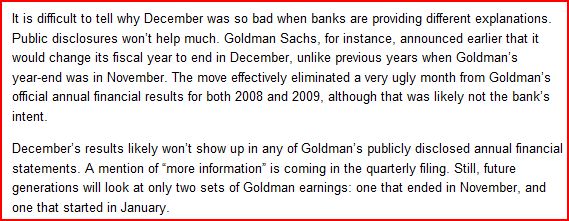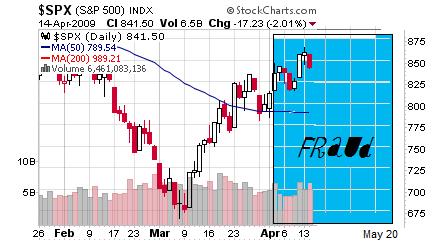April 14, 2009
Cinco de Mayo Is Not Mexican Independence Day
(from Wikipedia)
History
In 1861, Mexico ceased making interest payments to its main creditors. In response, in late 1861, France (and other European countries) attacked Mexico to try to force payment of this debt. France decided that it would try to take over and occupy Mexico.
History
In 1861, Mexico ceased making interest payments to its main creditors. In response, in late 1861, France (and other European countries) attacked Mexico to try to force payment of this debt. France decided that it would try to take over and occupy Mexico.
WSJ: Did December Ever Happen?

What else ended in November and started in January?

On September 21, 2008, Goldman and Morgan Stanley changed their status from investment banks to bank holding companies-- and thus submitted themselves to the oversight of banking regulators and the Fed.
So December went missing with the government's approval. The same approval that allows the release of earnings that are of the form: "if you exclude our losses, we're making a ton of money."
When this earnings season ends, I would recommend being no where near a stock market. Cinco de Mayo seems an excellent time to sell.
3 Comments